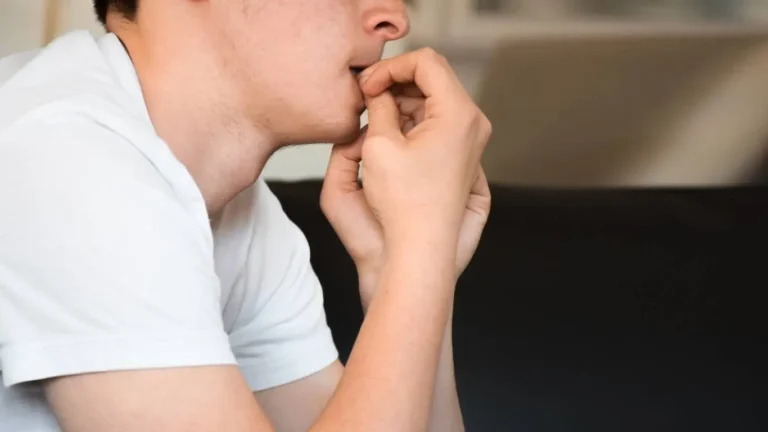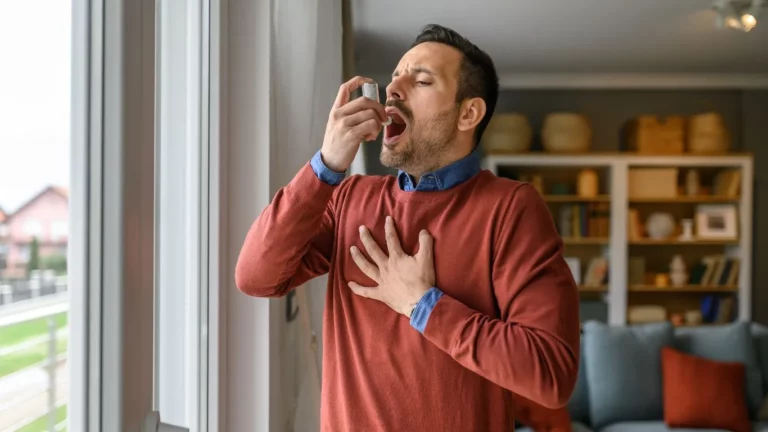Can Weight Loss Help GERD? Discover the Game-Changing Truth
If you’ve ever dealt with that uncomfortable, burning sensation creeping up your chest after a meal, you’re not alone. As someone who works closely with patients at a gastroenterology clinic, I’ve seen firsthand how common acid reflux and GERD can be—and how frustrating it is trying to manage it. One of the questions I hear all the time, especially from folks struggling with both reflux and weight issues, is: can weight loss help GERD? It’s a totally fair question. GERD is already a pain (literally), and adding weight struggles to the mix can make things even more challenging. But here’s the thing—not only can weight loss help, it can sometimes make a pretty big difference. Let’s dig into why that is.
Understanding GERD: What’s Actually Going On?

GERD, or gastroesophageal reflux disease, is when stomach acid regularly flows back into your esophagus. That backflow is what causes the heartburn, chest discomfort, and sometimes even regurgitation that people complain about. In the clinic, I’ve met patients who tell me they can’t even lie down after dinner without feeling like lava is rising in their throat. It’s more than just a nuisance—it affects sleep, diet, and quality of life.
Now, we all experience a little reflux from time to time, but GERD is when it becomes chronic and disruptive. One major culprit? The lower esophageal sphincter (LES)—that little muscle that acts like a gate between your esophagus and stomach. When it weakens or relaxes at the wrong times, acid slips through.
How Weight Gain Impacts GERD

Here’s where the conversation gets real. Excess body weight, especially around the abdomen, puts more pressure on your stomach. That pressure can literally force acid upward, especially when you’re bending over or lying down. I’ve had patients come in saying their symptoms are worse at night—and yep, that’s a classic sign.
Abdominal Fat: The Hidden Reflux Trigger
This isn’t just about being overweight in general. It’s where you carry the weight. Fat around the midsection is particularly problematic because it increases intra-abdominal pressure. It’s like squeezing a balloon—something’s gotta give. And unfortunately, that “give” often happens at the LES.
What’s wild is that I’ve worked with patients who only lost 10 to 15 pounds and already noticed fewer reflux flare-ups. Not a complete cure, but definitely less discomfort and fewer antacids in the mix.
Other Weight-Related Factors
Extra weight also tends to come with other GERD triggers:
- Dietary habits: Higher weight often means more processed or high-fat foods, which can trigger reflux.
- Increased inflammation: Obesity is linked with chronic inflammation, which can affect digestive function and the health of the esophagus lining.
- Hiatal hernia risk: Heavier individuals are more prone to developing hiatal hernias, where part of the stomach pushes through the diaphragm and can worsen GERD symptoms.
So, Can Weight Loss Help GERD?

Absolutely—and in more ways than one. From what I’ve seen at the clinic, patients who focus on even gradual, realistic weight loss often report less bloating, reduced reflux episodes, and better sleep overall. And I’m not just talking about the number on the scale—it’s also about the lifestyle shifts that come with it.
What the Research Says
There’s plenty of research that backs up what many patients already experience. Several studies have shown a strong correlation between weight loss and improvement in GERD symptoms. In fact, one study published in the journal *Gastroenterology* found that individuals who lost around 10% of their body weight saw a significant reduction in symptoms—especially if their weight was concentrated around the belly.
From My Experience in the Clinic
I’ve seen some incredible transformations. One patient—let’s call her Maria—came in feeling discouraged, popping antacids like candy, and waking up with that awful bitter taste in her throat. She committed to making small changes: walking daily, cutting out late-night snacks, and swapping soda for water. Six months later, she was down 20 pounds and barely dealing with reflux anymore. That didn’t just make her feel better physically; it gave her confidence back. These are the kinds of wins we don’t talk about enough.
Even Modest Changes Matter
Weight loss doesn’t have to be drastic to be meaningful. If the idea of losing 50 pounds sounds overwhelming (and let’s be honest, it does), aim for small, sustainable progress. Here’s what I often suggest to patients:
- Start moving more—nothing intense, just a daily 20-minute walk after dinner.
- Eat smaller meals more frequently to reduce stomach pressure.
- Limit reflux triggers like fried foods, caffeine, and alcohol (yes, even that glass of wine… sorry!).
- Avoid lying down within 2-3 hours after eating.
- Raise the head of your bed if nighttime reflux is an issue.
And again, this isn’t about dieting to the extreme. It’s about supporting your body in ways that reduce the stress on your digestive system. If you’ve been wondering, “Can weight loss help GERD?” — the answer is yes, and you don’t have to overhaul your entire life to start seeing benefits.
Practical Tips for Losing Weight When You Have GERD

So now that we’ve unpacked the “why” behind the question can weight loss help GERD, let’s talk about the “how.” Because here’s the deal—I’ve had plenty of patients who know they need to lose weight but feel stuck. It’s not just about willpower, it’s about knowing what changes actually work when you’re dealing with reflux on top of everything else.
Let’s be real—some of the usual weight-loss advice (like intermittent fasting or keto) can actually make GERD worse. So the key is to make smarter choices that don’t aggravate your digestive system in the process. I’ve worked with enough patients to know it doesn’t have to be perfect—it just has to be doable.
Focus on Portion Control
One of the biggest game-changers for many patients? Just eating a little less per meal. Overeating is one of the fastest ways to trigger a reflux episode. In the clinic, we often see folks who eat healthy food, but the portions are too large—especially at dinner. Try switching to smaller meals throughout the day instead of three big ones. Your stomach (and your esophagus) will thank you.
Watch Those Triggers
This is the part where I sound like a broken record, but it’s worth repeating: know your personal reflux triggers. Everyone is different. For some, it’s spicy salsa. For others, it’s coffee or citrus fruits. Start a food journal for a week and take notes. I once had a patient discover her “healthy” green smoothie was packed with acidic fruits causing her morning reflux!
Move Your Body (But Gently!)
Another tip? Stay active—but don’t overdo it, especially right after eating. One thing I always remind patients: you don’t need to run marathons to see a benefit. Simple walks after meals can improve digestion and help you burn calories without triggering reflux. I’ve even had people start with chair yoga or water aerobics when joint pain or other issues made more intense exercise tough.
Foods That Support Both GERD Relief and Weight Loss

Here’s where things get a little easier (and tastier). You don’t need to eat bland, boring food to calm down your GERD symptoms while trying to shed pounds. In fact, some foods actually soothe your digestive tract and help support weight loss goals.
- Oatmeal: A solid breakfast option that’s filling and low-acid.
- Leafy greens: Spinach, kale, and other greens are packed with nutrients without triggering reflux.
- Lean proteins: Think grilled chicken, turkey, tofu, or fish. Skip the greasy burgers for now.
- Whole grains: Brown rice and quinoa keep you full without the acid spike.
- Bananas and melons: These fruits are less acidic and can be GERD-friendly alternatives to citrus.
It’s all about keeping things light, nutritious, and low on acidity. One of my regular patients actually keeps a “GERD-safe grocery list” stuck to her fridge, and it’s made shopping so much easier for her. If you make it easy to stick with, you’re more likely to follow through long-term.
Why the Scale Isn’t the Only Sign of Progress

I can’t tell you how many times I’ve had patients get discouraged when the number on the scale doesn’t budge quickly. And hey, I get it—it’s frustrating. But here’s something we talk about a lot at the clinic: non-scale victories. These are those little wins that show your efforts are paying off, even if the weight loss feels slow.
What GERD Improvements Look Like Day-to-Day
If you’re dealing with GERD, here are some signs you’re making progress (even before the pounds come off):
- Waking up without that bitter acid taste in your mouth
- Needing fewer Tums or proton pump inhibitors (PPI meds)
- Sleeping through the night without reflux interruptions
- Less bloating after meals
- Being able to eat some foods you had to avoid before
These are huge. Celebrate them! I had one patient tell me the best part of her lifestyle change wasn’t the weight—it was finally being able to sleep flat again without propping herself up on five pillows. That’s quality of life right there.
Setting Realistic Goals Without Overwhelming Yourself
Let’s be honest: making changes can be hard. But it doesn’t have to feel impossible. The goal isn’t perfection—it’s consistency. I usually recommend starting with just one or two changes at a time. You don’t need to flip your whole routine upside down to feel better.
Try This 4-Week GERD + Weight Loss Friendly Mini Plan:
- Week 1: Swap one large meal for two smaller ones. Add a 10-minute walk after dinner.
- Week 2: Cut out late-night snacking. Identify one trigger food to eliminate.
- Week 3: Add more veggies to lunch and dinner. Switch to whole grains.
- Week 4: Begin tracking your reflux symptoms in a journal. Reflect on progress.
Little shifts like these can lead to big results over time. And if something doesn’t work for you? No biggie. Adjust and keep going. One of the biggest things I’ve learned from patients over the years is that progress looks different for everyone.
When to Talk to a Specialist
If your reflux symptoms are persistent—even after making some of these changes—it might be time to check in with a GI specialist. In my role as a medical assistant, I often help patients schedule things like endoscopies or pH monitoring tests if their symptoms aren’t improving with lifestyle shifts alone.
Also, if you’re trying to lose weight but feel totally stuck, getting support from a registered dietitian or weight management program might help. Many clinics (ours included) offer personalized guidance that takes your GERD into account.
The bottom line? Weight loss can absolutely help GERD, but it’s not a magic fix. It’s one piece of a bigger puzzle that includes your habits, diet, movement, and overall gut health. And the best part is, you don’t have to figure it all out overnight—or alone.
Long-Term Lifestyle Shifts That Keep GERD in Check

By now, we’ve talked a lot about how weight loss can help GERD, and we’ve gone over some realistic tips to get started. But what happens once you’re a few months in? That’s where a lot of people get stuck. I’ve seen it over and over—patients start strong, then life gets busy, stress kicks in, or old habits sneak back in. Totally normal, but it’s also why long-term success comes down to building habits that are sustainable, not extreme.
Honestly, the biggest wins I’ve seen in the clinic don’t come from fad diets or hardcore bootcamp workouts. They come from small, everyday choices that people actually stick to. And those little shifts, stacked over time? They change lives.
Consistency Over Perfection
One thing I always tell patients is: progress doesn’t have to be perfect. If you eat late one night or indulge in something spicy that sets your reflux off, it doesn’t mean you’ve failed. Just regroup and keep moving forward. It’s the long-term trends that matter—not one off day.
In fact, I had one patient (we’ll call him James) who lost about 30 pounds over a year. He didn’t do anything radical—just walked daily, cut back on soda, and stopped eating three hours before bed. He told me his reflux used to wake him up nightly, but now he’s sleeping through the night. That’s the kind of success that lasts.
Keep Adjusting As You Go
Your body isn’t static, and neither is your lifestyle. What works for you now might not be the same thing that works in six months—and that’s okay. Keep checking in with yourself. If something feels off or your reflux symptoms creep back, take a look at your meals, stress levels, and sleep habits.
Don’t Forget About Stress
Oh yes—stress. We see this all the time in the clinic. Even people who eat all the right things and maintain a healthy weight can still struggle with GERD if they’re constantly stressed out. Stress tightens the muscles, messes with digestion, and increases acid production. Not to mention, it can make you reach for comfort foods that trigger reflux.
Consider adding some stress-reducing habits to your daily routine:
- Short morning or evening walks
- Deep breathing or guided meditation (even 5 minutes helps)
- Stretching or yoga—especially gentle movements that help with digestion
- Keeping a journal (several of my patients swear by this one!)
What If You’re Not Losing Weight—But Still Want GERD Relief?

Look, not everyone is going to lose a bunch of weight—and that’s okay. There are still plenty of ways to manage GERD without focusing solely on the scale. I’ve had patients with stable weight who dramatically reduced their symptoms just by shifting when and what they ate. That’s the beauty of it—there’s more than one path to relief.
Helpful Adjustments for Any Body Size
- Time your meals: Aim to stop eating 2–3 hours before bedtime. This gives your stomach time to empty.
- Stay upright after meals: Sit or walk—no lying down right after eating.
- Elevate your bed head: Lifting the head of your bed by 6–8 inches can reduce nighttime reflux.
- Hydrate the smart way: Sip water throughout the day, but avoid chugging large amounts during meals.
- Chew thoroughly: Sounds simple, but slower eating helps digestion and reduces pressure on your stomach.
Even without weight loss, these changes can have a major impact. I once worked with a woman in her 70s who couldn’t lose weight due to mobility issues, but just by changing her meal timing and elevating her bed, her nighttime reflux practically disappeared.
When to Seek Extra Help
If lifestyle changes aren’t cutting it, don’t tough it out alone. Chronic GERD can lead to serious complications like esophagitis, Barrett’s esophagus, or even increase the risk for esophageal cancer. It’s not something to ignore. If you’re still struggling, please talk to your healthcare provider or a gastroenterologist.
You may need medication support or diagnostic tests like endoscopy to get a clearer picture. Trust your gut—literally. If something doesn’t feel right, it’s worth looking into.
Final Thoughts: You’ve Got This
Managing GERD and working toward a healthier weight isn’t about overnight transformation—it’s about building a life that supports your well-being. From what I’ve seen working in gastroenterology, it’s absolutely doable. Whether you’re starting small with portion control or going big with a total lifestyle shift, every step you take matters.
And remember—yes, weight loss can help GERD, but it’s about more than the number. It’s about feeling better, sleeping better, and not having to dread every meal. Start where you are, use what you have, and do what you can. You’re not alone in this.
Helpful References
Disclaimer
This article is for informational purposes only and based on my experience as a medical assistant in a gastroenterology clinic. It is not intended to replace professional medical advice, diagnosis, or treatment. Always consult your doctor or qualified healthcare provider with any questions you may have regarding a medical condition.

Camellia Wulansari is a dedicated Medical Assistant at a local clinic and a passionate health writer at Healthusias.com. With years of hands-on experience in patient care and a deep interest in preventive medicine, she bridges the gap between clinical knowledge and accessible health information. Camellia specializes in writing about digestive health, chronic conditions like GERD and hypertension, respiratory issues, and autoimmune diseases, aiming to empower readers with practical, easy-to-understand insights. When she’s not assisting patients or writing, you’ll find her enjoying quiet mornings with coffee and a medical journal in hand—or jamming to her favorite metal band, Lamb of God.







